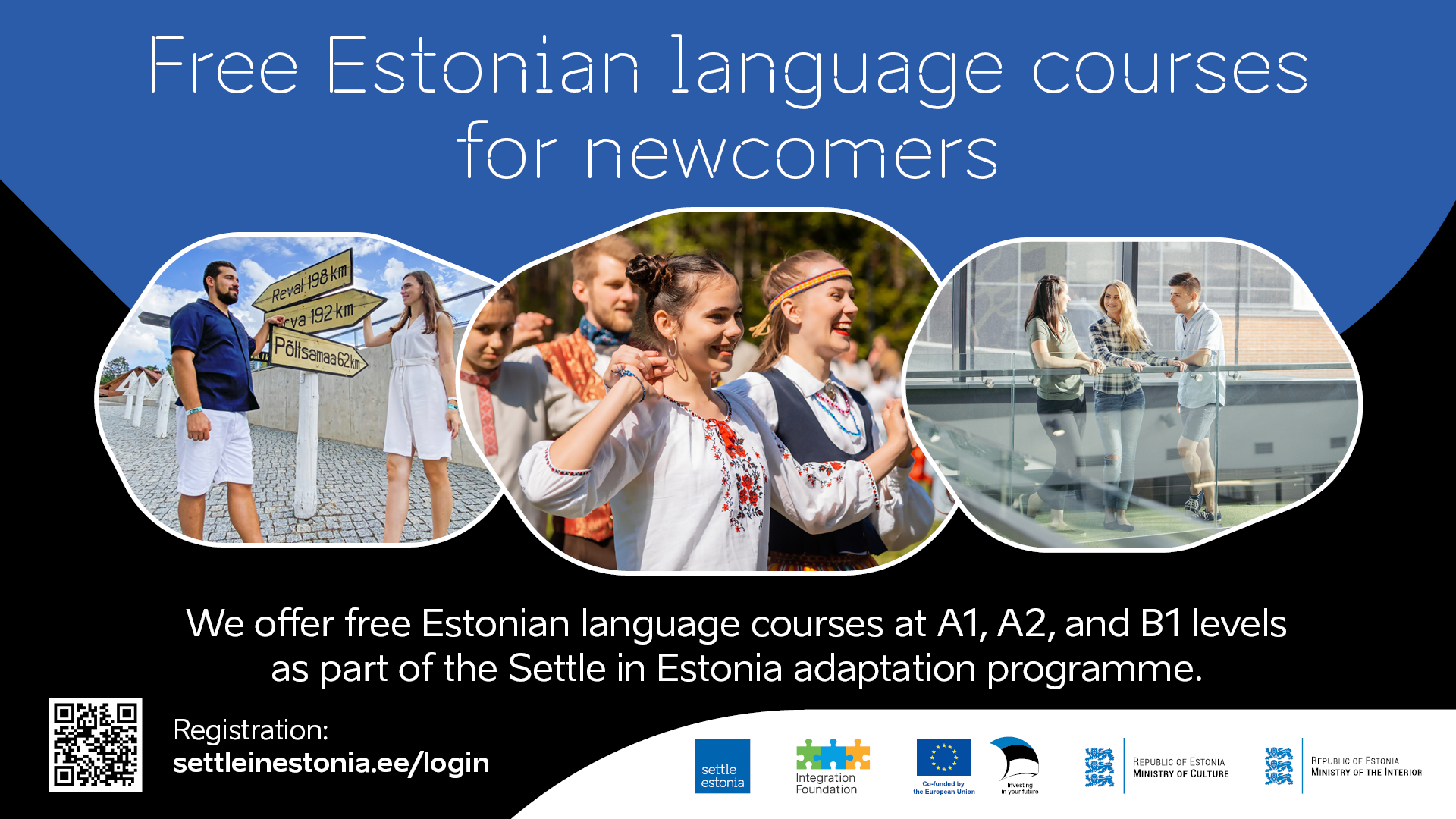
The Settle in Estonia portal currently offers a number of A1, A2, and B1 level Estonian language courses and adaptation training courses, which gives an overview of the Estonian country, society and life in Estonia. The training/courses you can take part in under the adaptation programme depend on your legal status in Estonia.
Trainings/courses open for registration:
Regular migration*: A1, A2, and B1 level Estonian language courses - Registration is open and will run until places are filled; adaptation training.
Beneficiaries of temporary protection: A1, A2, B1 level Estonian language course groups will be opened for registration in 30 April and 31 May. Registration is open and will run until places are filled. The adaptation training courses are expected to open at the end of May.
Beneficiaries of international protection (except beneficiaries of temporary protection): A1, A2, and B1 level Estonian language courses; Registration is open and will run until places are filled; adaptation training.
* Regular migration: newcomers who have been granted a residence permit in Estonia on the basis of work, study, business, family member, etc., and EU citizens and their family members staying in Estonia on the basis of a right of residence.
Courses are available both online as well as on-site in major cities. In order to sign up for courses, you need to create an account on the Settle in Estonia adaptation programme website www.settleinestonia.ee. On your personal account, you can see all the courses suitable for you that are open for registration and have available spots. In order to sign up for a course, you must click on the ‘Register’ button next to the course in the list of courses open for registration. If you have any questions, please write to us at info@settleinestonia.ee. Or call toll-free number 800 9999.
The adaptation programme is intended for adults who have stayed in Estonia on the basis of a residence permit or right of residence for less than five years from the moment of obtaining the initial residence permit or right of residence. The adaptation programme is co-funded by the European Union and state budget funds.
